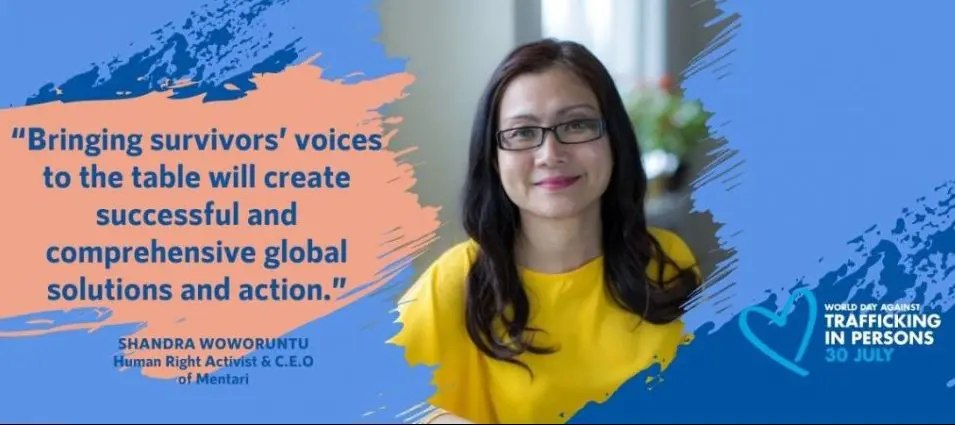Shandra worked as a financial analyst and money market trader at an international bank. When she lost her job, due to forces beyond her influence, she started applying for posts overseas. This is when she came across a seasonal job offer at a hotel.
“After I paid the fees of US$ 3,000 to the agent, I got the papers from the hotel and applied for the Visa, which I soon received,” Shandra recalls. But when she arrived at the airport, she was picked up by a trafficker and was sold into sex trafficking. “They took my passport, ticket, and suitcases, and demanded US$ 30,000 for my freedom,” she says.

After she escaped from the situation of exploitation, she had difficulties reintegrating and moving on with her life. “There were no resources or funding available. But I have learned from my own experience,” Shandra says, explaining why she founded the survivor empowerment programme “Mentari” and dedicated her life to supporting trafficking survivors.
“Advocacy work is very important for me as a survivor,” she says, and as a survivor advocate, she has helped shape laws on human trafficking. “The fact is, there is not enough help and support for victims and survivors,” she explains, adding “there are also difficulties in seeking justice”.
“I sit with survivors and listen to them,” Shandra explains her survivor-centered approach, and it is these experiences that help her propose new legislation or advocate for changes in existing laws. “Survivors are change makers,” she says, highlighting the importance of survivor leadership. Shandra is convinced that survivors can provide invaluable input to national and international anti-trafficking frameworks.

At “Mentari” she has developed a new programme which helps survivors to reintegrate into society and find their way back to their community. “I found a gap in the support system for survivors,” she says, “not all survivors have an education or skills.” While their trauma is often also an obstacle for survivors to go back to school. “And sometimes there are language barriers too,” Shandra explains.
“We empower victims through mentorship and leadership,” she says. Their culinary arts vocational training programmes were the first in the US developed specifically for human trafficking survivors. The programmes also include job placement assistance.

Shandra believes that the experiences of survivors play an important role in preventing human trafficking and also form an essential part of the education and training of law enforcement officers and health care professionals. Empowering survivors is essential, she says, as without their knowledge “no one can be an expert in the prevention, investigation, and prosecution of this crime.”







